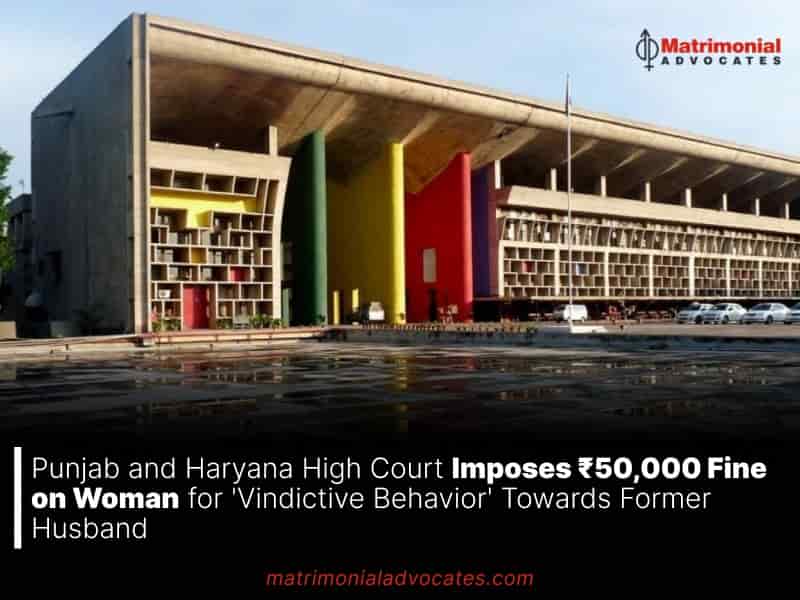
The woman had moved courts in different states alleging that the man had cheated her by obtaining the decree of mutual consent divorce through fraud.
The Punjab and Haryana High Court recently imposed a ₹50,000 fine on a woman for filing a criminal complaint against her ex-husband, alleging he deceived her into a mutual divorce. Justice Sumeet Goel remarked that the complaint was intended to harass and “retaliate” against the man, as both a family court and the Uttarakhand High Court had already ruled against her.
“The filing of the criminal complaint by the respondent (herein) complainant reflects abuse nay gross abuse of process of law and Courts at her instance on account of the nature of allegations made as also lack of territorial jurisdiction,” the Court said.
It asserted that these covert attempts must be decisively halted.
“The respondent (herein) – complainant deserves to be saddled with costs, which ought to be veritable and real time in nature.”
The couple married in Ludhiana in 2003 and had two children. Their marriage was dissolved by a family court in Roorkee in September 2014. The woman later alleged that the divorce had been obtained fraudulently and sought to have the decree overturned in the family court, but her request was denied. She then appealed to the Uttarakhand High Court but withdrew her case, opting to pursue other legal avenues.
In a 2016 complaint to a Punjab court, she accused her ex-husband of deceit, claiming he secured the mutual consent divorce without paying any permanent alimony. She also alleged that he made false promises and maintained physical relations with her even after the divorce.
In June 2017, the magistrate issued a summons to the man under Section 420 (cheating) of the Indian Penal Code, which has led to the present case in the High Court. The Court initially examined whether the summons was correctly issued in accordance with Section 202(1) of the Code of Criminal Procedure (CrPC).
The provision mandates that the magistrate must postpone issuing a process against the accused if they reside outside the court’s jurisdiction. Instead, the magistrate must first conduct an inquiry or direct an investigation to assess whether there is sufficient evidence to proceed with the case. Justice Goel remarked on this issue, stating…
“In a criminal complaint, in case there are multiple accused sought to be summoned, the mandatory provision of Section 202(1) of Cr.P.C. will be required to be adhered to even if one of such accused is reflected to be residing outside the area jurisdiction of such Magistrate.”
The Court observed that all the individuals named in the complaint filed in Ludhiana reside in Haridwar and Dehradun. It noted that the summoning order did not adhere to the prescribed procedures and questioned how the magistrate concluded that the offense occurred in Ludhiana. Concerning the case, the Court highlighted that two attempts to annul the divorce decree had been rejected by the family court, and the appeal to the Uttarakhand High Court had been withdrawn.
“The liberty reserved in favour of the respondent – complainant by the Hon’ble Uttarakhand High Court to take recourse in law (if advised) can, by no stretch of legal imagination, be construed as granting permission to file the impugned criminal complaint,” it said.
The Court determined that this constituted an abuse of the legal process and dismissed both the complaint and the summoning order, along with all associated proceedings.
“The respondent (herein) – complainant is saddled with costs Rs.50,000/- which shall be deposited by her with trial Court within eight weeks from today,” the order stated.
Advocate PK Dwivedi represented the petitioner.
Advocates GBS Gill and Shilesh Gupta represented the complainant.





